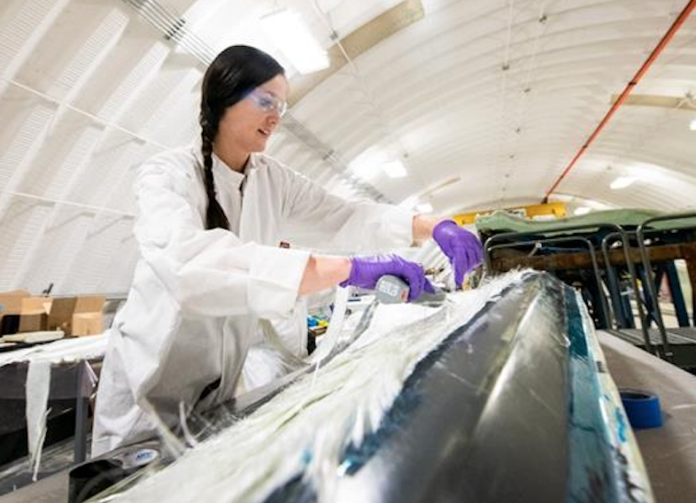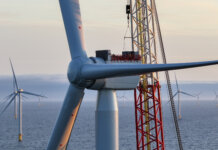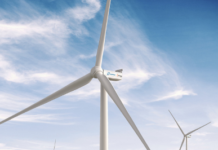National Renewable Energy Laboratory (NREL) researchers have demonstrated the feasibility of thermoplastic resin for use in the manufacture of wind turbines by producing a 9-meter-long blade using this novel resin, which was developed by Arkema Inc.
In addition to the recyclability aspect, thermoplastic resin can enable longer, lighter-weight and lower-cost blades. Manufacturing blades using current thermoset resin systems requires more energy and manpower in the manufacturing facility – and the end product often winds up in landfills.
“With thermoset resin systems, it’s almost like when you fry an egg. You can’t reverse that,” says Derek Berry, a senior engineer at NREL. “But with a thermoplastic resin system, you can make a blade out of it. You heat it to a certain temperature and it melts back down. You can get the liquid resin back and reuse that.”
NREL has also developed a technoeconomic model to explore the cost benefits of using a thermoplastic resin in blades. Current wind turbine blades are made primarily of composite materials such as fiberglass infused with a thermoset resin. With an epoxy thermoset resin, the manufacturing process requires the use of additional heat to cure the resin, which adds to the cost and cycle time of the blades. Thermoplastic resin, however, cures at room temperature. The process does not require as much labor, which accounts for about 40% of the cost of a blade. The new process, the researchers determined, could make blades about 5% less expensive to make.
NREL is home to the Composites Manufacturing Education and Technology (CoMET) Facility at the Flatirons Campus near Boulder, Colo. There, researchers design, manufacture and test composite turbine blades. They previously demonstrated the feasibility of the thermoplastic resin system by manufacturing a 9-meter composite wind turbine blade. They followed that demonstration by manufacturing and structurally validating a 13-meter thermoplastic composite blade compared to a near-identical thermoset blade. This work, coupled with work by Arkema and other Institute for Advanced Composites Manufacturing Innovation partners, demonstrated advantages to moving away from the thermoset resin system.
The thermoplastic resin could also allow manufactures to build blades on site, alleviating a problem the industry faces as it trends toward larger and longer blades. As blade sizes grow, so does the problem of how to transport them from a manufacturing facility.




